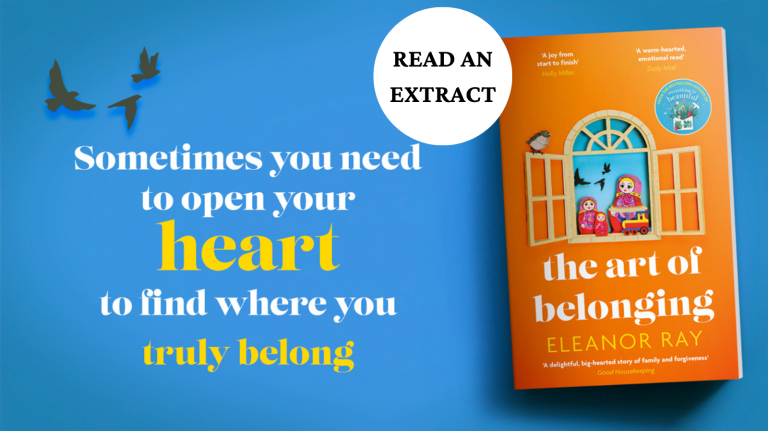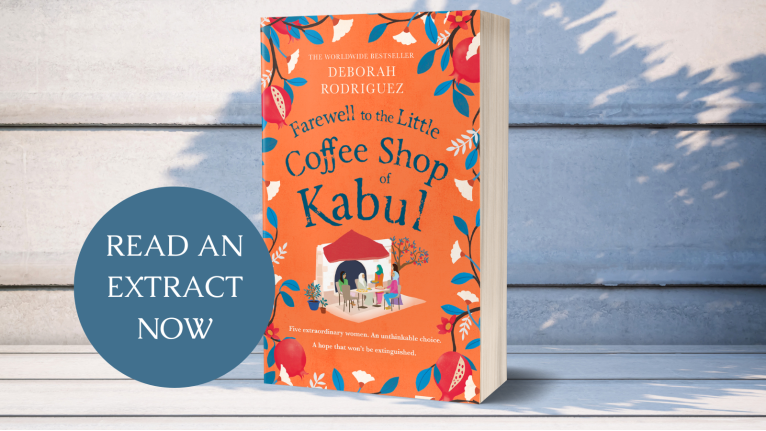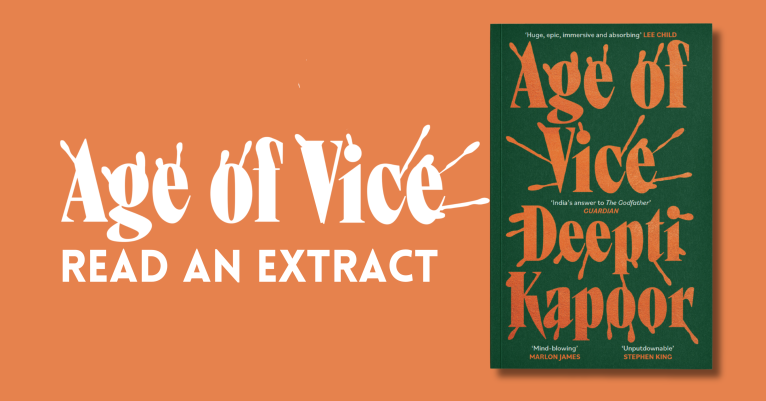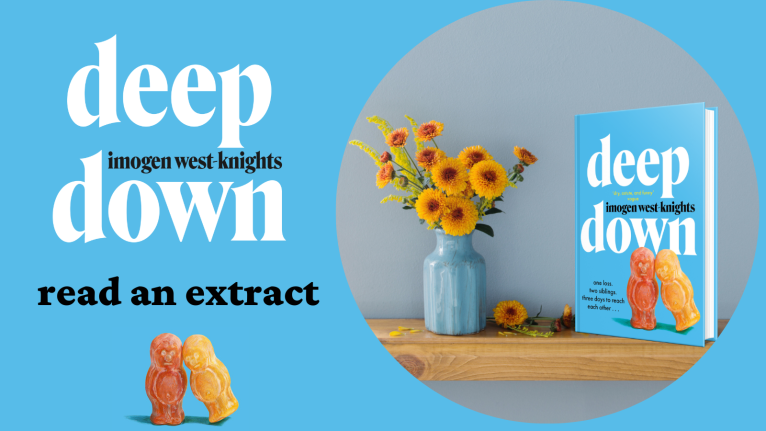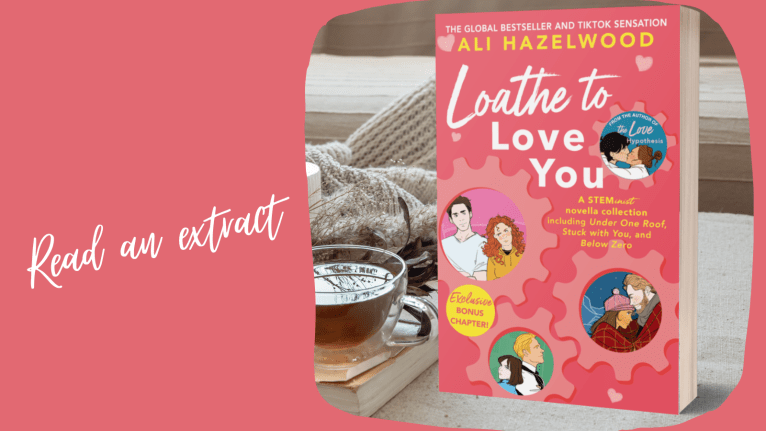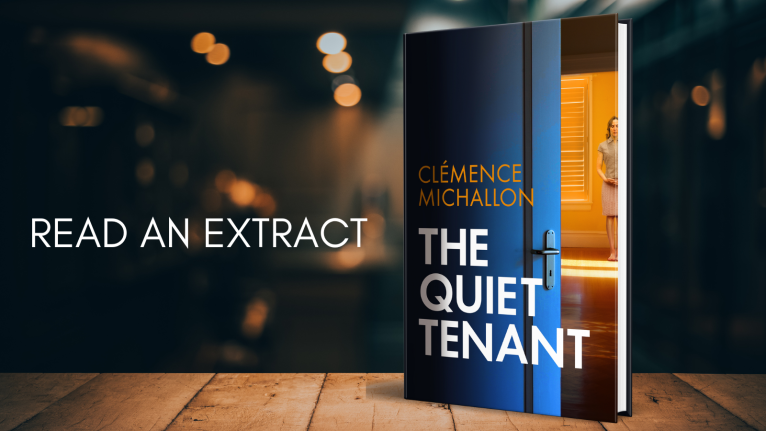An exclusive extract from Jenny Eclair’s Inheritence!

Prologue
The baby lies in the half-open drawer and contemplates the cracked surface above her head. It’s called a ceiling, but she has no words for anything as yet – she is three weeks old.
The baby has cradle cap and a blocked tear duct. These things are not life threatening – the baby will survive. In time she will grow and learn the names for hundreds of thousands of things, some in French. She will develop a lifelong love of baked beans on toast with grated cheese on top. She will learn to walk and run and have adventures, and she will hate going to Brownies and having her hair put in tight elastic bands.
The baby is seven and a half pounds of potential. She will go on to do all sorts of things: ride a bike, hang wallpaper, thread a needle, make casseroles, throw a pot, swear, love, laugh, cry . . . and even, one year, attempt to make her own Christmas crackers.
A world of possibilities awaits her, as long as she is found.
Falling (1)
Cornwall, August 2018
The pain, when it happens, is instant and surprising. It comes from nowhere, sharp, to the side of her head, her right temple, and in that split second before the sky turns black, Bel senses herself dropping and remembers watching a tower block collapsing on the television, a wrecking ball swinging.
She comes round seconds later, feeling the ground beneath her. Grass, she is lying on green grass, it prickles her back. She should get up – people will think she’s drunk. You can’t go to parties in the middle of the day and fall over for no reason, not when you are a woman in your mid-fifties and have been seen holding at least one glass of Pimm’s.
Voices babble above her. ‘Stand back, for heaven’s sake.’ ‘Give the poor woman some breathing space.’
Oh dear, she is a ‘poor woman’. She hopes she fell well; she hopes she crumpled rather than crashed.
A child is being told off in the distance. ‘Ludo, what the hell?’ It’s Lance’s voice. ‘For God’s sake, get her indoors.’
There is something impatient in her adopted brother’s voice. She will be making the place look untidy – Lance and his wife Freya are very ‘aesthetically aware’. She heard someone coin this phrase last night as Freya ceremoniously carried a picture-perfect fish pie to the jasmine-scented table while creamy ecclesiastical candles repeated themselves in an ancient Venetian-glass mirror.
The last thing they will want at Lance’s fiftieth birthday cele- bration weekend is a fat middle-aged woman sprawled out on the lawn next to the tennis court.
Other voices mutter in a ragged circle around her. ‘It was a stone, apparently.’
‘But why was he hitting a stone with a tennis racket?’ ‘Because his sister wouldn’t give him back the ball.’ ‘Just get her comfortable.’
‘Where is Allan?’ ‘Who’s Allan?’ ‘Her husband.’
‘I think he’s called Andrew. He went to get some more ice from the village, he’ll be back soon. I’m sure she’ll be fine.’
A man in faded red trousers leans over her, his breath reeking of garlic, and peels back her eyelids. The sensation is uncomfortable and she imagines he will have smudged the soft grey eyeshadow that Maisie forced her to apply.
‘Knocked out cold, I’d say, but she’s coming to. Be right as rain in a jiffy.’ He commandeers a passing waitress to help him carry the woman indoors.
The man seizes her under her arms and Bel can feel her top gape away from her skirt – how embarrassing. Someone, the waitress presumably, has her by the ankles and she feels a sudden chilliness as they haul her up the shaded stone steps towards the house. So she is not completely out of it, she deduces, she can still smell the intense sweetness from the honeysuckle that clings to the grey stone wall, hear the crunch of footsteps on the gravel drive.
The waitress is gripping Bel’s puffy ankles with difficulty. Bel can see through half-open eyes that she is a pretty girl with tattoos that probably made her mother cry; Japanese dragons and geisha girls run riot around her sturdy arms.
This is ridiculous, Bel thinks. The poor girl was hired to carry large white plates of intricate canapés, whirls of piped chicken mousse on tiny squares of pumpernickel, topped with dill and a sliver of cornichon, not cart heavy middle-aged matrons around. Perhaps Tattoo Girl will nick a bottle of fizz to make up for it later. It wouldn’t be difficult; there are bottles cooling in plastic bins all over the place.
Bel relaxes her body: though she is not completely unconscious, playing the part will get her out of all those awkward social niceties on the lawn, and she’s only too glad of an excuse to escape this party for a while.
‘Where are we taking her?’ the waitress asks Pink Trousers. ‘They’re in the blue room,’ a woman’s voice replies – Freya, Bel
guesses. Lance’s wife is in charge of that sort of thing – who gets to sleep in the main house and who gets relegated to camping in yurts. Not camping, she corrects herself, ‘glamping’.
‘Main house, first floor, left at the top of the main staircase and then the last door along the corridor on the right.’
Yes, that’s Freya. Her foreign accent is more pronounced when she is anxious.
Not a sea view, which is a shame, but a gorgeous room none- theless. Freya has done such an amazing job. She’s so clever, her children so well behaved, so beautiful, and of course Ludo didn’t mean it, it was an accident. Accidents happen, though some of them have more far-reaching consequences than one can ever imagine, thinks Bel dozily, allowing herself to be transported like a sack of potatoes through the coolness of the hallway and up the broad carpeted stairs. Pink Trousers and Tattoo Girl start to puff as they round the stairs up to the first floor; as prisms of jewel-coloured light from the stained-glass window flutter across her eyelids, Bel can smell the beeswax polish ingrained into the wood of the banister rail. She knows that if she could be bothered to open her eyes she would see a large replica of a sailing boat perched on the windowsill, a relic from when the house belonged to Lance and Bel’s grandmother, Peggy. Bel met her only once; an American woman with a face like an Estée Lauder death mask.
Rounding the corner on to the landing, Bel can feel the girl struggling to keep hold of her legs. Never mind, if they dropped her here she could always crawl.
‘Not far now,’ puffs Pink Trousers. ‘Gosh, if this isn’t a reminder to get down to the gym a bit more often, I don’t know what is.’
Bel hopes they can’t see her bra. She was going to buy a new one, but with all the other expenses of Lance’s fiftieth – her outfit, Andrew’s new shirt, not to mention the exorbitant gift – it went on the back burner.
‘One, two, three and hups-a-daisy,’ says the man, and together he and the waitress heave Bel on top of the duvet.
‘Should we take her shoes off?’ asks the waitress.
‘Just her shoes,’ replies the man. ‘We don’t want it to look like she’s been interfered with,’ and he laughs as if the idea is prepos- terous. The girl doesn’t laugh, she gently removes Bel’s all-purpose nude patent mid-heel pump, which she’d bought last summer in the Russell & Bromley sale, and Bel instinctively wriggles her toes in relief; the shoes are a tiny bit tight.
‘See,’ chuckles Pink Trousers, pointing to Bel’s feet. ‘Signs of life in the old trotters.’ Now Bel wishes she’d had a pedicure. Maisie had offered to paint her toenails but went off the idea when she saw them: ‘Seriously, Bel, you got some issues down there.’
The girl draws the curtains with a satisfying swish – they match the duvet, Bel had noticed this last night, making sure she compli- mented Freya on the detail when they went downstairs for drinks on the patio. ‘Osborne and Little,’ Freya had explained. ‘I wanted something that reflected how the house was in its heyday, rein- terpreted with a modern twist. Fresh, yes?’ Honestly, the woman’s English is impeccable; listening to her, you’d never guess she was from Sweden, or was it Finland? Although those children of hers are a bit of a giveaway with their Scandinavian white-blond hair and quick-to-tan complexions. Freya and Lance’s children go the colour of tinned hot dogs in summer.
Poor Ludo, she hopes no one is blaming him for this – it’s not as if he did it on purpose. Besides, it’s a relief to take some time out of this party. It seems to have been going on for ever, what with the drive down from London, the drinks and meal last night, today’s lunch and games on the lawn. If she can get out of tonight’s fancy dress and barn dance by claiming to have a bit of a sore head, then brilliant. Maybe someone will bring her some supper on a tray – baked eggs, something like that?
How peculiar, she hasn’t thought about baked eggs for years. Her mother’s daily help used to make them for her when she was a little girl. The thought of dear Mrs Phelan, who dropped down dead with a duster in her hand (‘Cleaning to the end,’ her husband said proudly), makes Bel feel a bit weepy.
Honestly, she needs to stop getting so emotional about everything. Of course it doesn’t help, being in this house. There is something about Kittiwake that has always managed to get under Bel’s skin. Well, you were born here, she reminds herself, sinking back into cool Egyptian six-hundred thread count cotton pillows.
Bel hears the door gently close, and as sleep creeps across her subconscious she starts to dream.
Bel dreams a lot. Her dreams are complicated and in full colour. Often they don’t make much sense and she has learnt not to talk about them because other people’s dreams are boring, as are their holiday photos and, for the most part, their children.
Lying in this room with its artfully chosen soft furnishings and its walls painted Wedgwood blue, Bel dreams that she is awake and sitting upright on the bed, watching a woman paint her face in the vanity unit that sits in the alcove of the window.
The same vanity unit in the same window alcove that Bel had laid her cosmetics bag and jewellery case on last night, the one she and Andrew had instantly cluttered up with their var- ious lotions and potions and packets of pills. But in the dream it looks different; all Bel and Andrew’s possessions have been replaced by an assortment of glass jars with blue enamel lids delicately traced in silver filigree, and perfume atomisers with elaborately tasselled pumps. The room feels much darker and it sounds as if it’s raining outside, though she knows that’s unlikely considering that so far it’s been a perfectly dry if occasionally overcast August day.
In the dream, someone has changed the curtains. Daylight is filtered dimly through a pair of green shot silk drapes, and the effect is reminiscent of an aquarium.
The woman’s face in the mirror glows as white as an onion. Slowly and meticulously she powders the whiteness with another layer and particles of the powder are momentarily suspended in the air. The woman’s hands are tiny and bejewelled – diamonds mostly, and an emerald as big as a thumbnail. Bel recalls seeing this ring on Freya’s finger last night at dinner. ‘A family heirloom,’ Freya had laughed when that Lucy woman commented on it. ‘For all I know, it could be paste.’ It isn’t; anyone with half a brain can tell the difference between the sparkling reality of a well-cut emerald and its duller counterfeit.
Even in the dream the ring shines, flashing in the mirror as the woman wields the tools of her trade, curling her eyelashes with a small, lethal-looking contraption before pencilling in her eyebrows with soft feathery strokes until they appear arched and as black as raven’s wings. Kohl eyeliner is traced along the inside of her eyelids, followed by layers and layers of jet-coloured mascara, until her eyes stand out like wet pebbles on a white beach. Finally the woman reaches for a gold bullet-shaped object and reveals a crimson lip- stick. Carefully she traces the contours of her mouth, making the line a little fuller than nature intended.
As she lifts her hands to remove the turban wrapped around her head, Bel is aware that the bedroom door has burst open and there is a tang of putrefaction. Something is rotting in the air, an odour as rank as decomposing fish. How strange, thinks Bel, to sense smell so strongly in a dream. Suddenly a small dark-haired boy is sobbing hysterically on the threshold of the room.
The woman’s eyes flash. ‘You must always knock, you know you must always knock.’ Then, taking in the fact the boy is dripping brackish water onto a cream carpet, she adds, ‘Jesus, Benedict, what have you been doing?’
The child is about nine years old. He is carrying a golf club and shivering uncontrollably, his clothes are sodden and stinking. ‘We were playing – me, Ivor and Natasha,’ he hiccups, barely able to speak for crying.
An older girl appears behind him, a plain girl with a long face and a haircut that does nothing for her, dressed in a soaking jumper and dripping woollen kilt. She says very calmly, ‘It’s Ivor, he fell in the pool – he’s not breathing. Mummy, I think Ivor is dead.’
Behind them stands an ashen-faced young man, dressed in a butler’s uniform. If her children are lying he will deny their story, but he doesn’t. His eyes are wide with horror and he is speechless.
‘We were only playing,’ the boy repeats.
The woman’s scarlet mouth twists but Bel cannot hear the howl, she can only imagine it. The woman has lost her son, and nothing will ever be the same again.
Bel weeps and even though she is still half asleep she is aware of the wetness on her cheeks. Her head throbs and for a moment she doesn’t know where she is, but she can definitely smell cigarette smoke. She shivers; it’s colder than it’s possible to be on an after- noon in August.
Bel manoeuvres herself deeper under the duvet. She’ll feel better when she wakes up, but for now . . .
Bel sleeps in the room where she was found. Even the wardrobe, where her little body was discovered swaddled in the bottom drawer, is the same. Newly restored, it gleams in the corner, its walnut sheen returned to former glory by a man in the village.
This room might have been redecorated but it is still the room where a mother heard the news that her son was dead, and where Bel’s own mother stroked the swell of her stomach and wondered whether jumping out of the window might be her best option.
Beginnings, middles and ends; Peggy, Serena, Natasha and Bel. This is the room that binds them, this is how consequences work. If Peggy’s son Ivor hadn’t died, then Benedict wouldn’t have got the house; if Benedict hadn’t inherited Kittiwake, then Serena wouldn’t have run away from it; and if Serena hadn’t run away,
then Natasha wouldn’t have . . .
It goes round in circles, but it always begins with the death of a child.
'So immersive, atmospheric and compelling' Marian Keyes
'Kept me glued to the page' Alex Marwood
'Achingly poignant . . . An absolutely brilliant read' Sunday Mirror
_____________
Beginnings, middles and ends; Peggy, Serena, Natasha and Bel. This is the room that binds them, this is how consequences work . . .
In deepest Cornwall, the mansion Kittiwake has seen many pass through its doors since it was bought by American heiress Peggy Carmichael seventy years ago.
Over the decades, the keys have been handed down through the family, and now it belongs to Bel's adoptive brother, Lance. It's where he'll be celebrating his fiftieth birthday, and Bel is invited.
But Bel barely feels like she's holding it together as it is, and in going back to Kittiwake, she will be returning to the place where it all began - where, following the death of a child, a sequence of events was set in motion, the consequences of which are still rippling down through the generations . . .
From Sunday Times bestselling author Jenny Eclair comes an utterly compelling new novel of family secrets that will stay with you long after you've turned the last page.
______________
PRAISE FOR JENNY ECLAIR:
'Wonderfully written, insightful and riveting' Daily Mail
'Compelling, compassionate and keenly observed' Independent
'Both heart-rending and compelling' Clare Mackintosh
'I loved it SO MUCH' Marian Keyes
'Witty, moving, dark and absorbing' Jo Brand
'An elegant, gripping and mesmeric read' Helen Lederer
'An absolute page-turner of a story' Judy Finnigan


